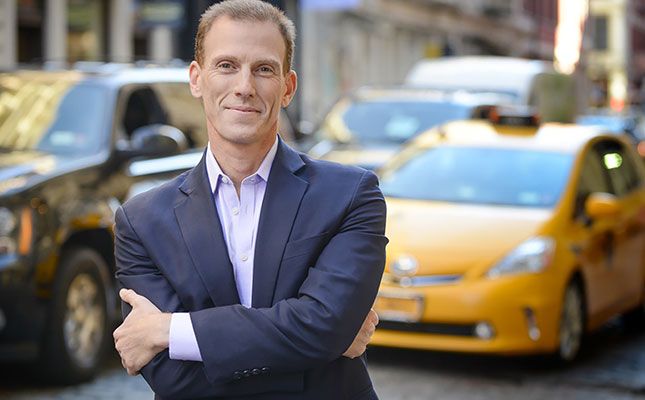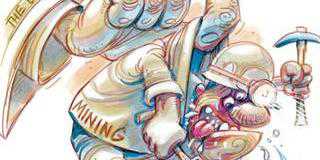
Photo: Supplied
The world’s first gene-edited human babies were born in October 2018. Dr He Jiankui, the Chinese biophysicist responsible for genetically editing the embryos, thought the feat would bring him instant renown; instead, his actions were widely condemned.
Why? Like the fictional Dr Frankenstein, He conducted most of his work in secret, lied about what he was doing, did not obtain informed consent, failed to get approval from the Independent Ethics Committee, and used a technology whose safety was as yet unproven.
While this criticism was more than justified, the work was a harbinger of where our species is inevitably heading, according to Dr Jamie Metzl, technological futurist and author of Hacking Darwin.
Metzl was speaking during a discussion on the ethical issues of human genome editing, hosted by the University of Cape Town’s Internal Medicine Society.
“Many people think that the genetic revolution is all about healthcare and reducing human suffering, which at this stage it is. The big questions for the future, however, will not only touch on the application of the technology, but also who we are and who we want to be, now that our species has developed the ability to remake life on Earth.”
preventing disease
The genetic revolution, explains Metzl, will result in a transition from general to precision healthcare, where treatments are better tailored to the specific needs of an individual, or gene therapies are used to re-engineer disease-fighting cells, for example.
“It’ll also change the way in which we make babies and the nature of the babies we make, leaving good old sex as a mere recreational activity.”
As an example, he points out that the increase in prenatal screening tests has resulted in a dramatic decline in the number of babies born with Down’s syndrome in Europe and the US. In Iceland, the condition has almost disappeared, with close to 100% of mothers with a positive test deciding to terminate their pregnancies.
The development of in vitro fertilisation and pre-implantation genetic diagnosis, in combination with new stem-cell technologies, promises to take genetic screening to a new level.
“New stem-cell technologies, together with improved digital technologies, will make it possible to grow hundreds of thousands of human eggs from adult cells, such as skin or blood cells, increasing the number of pre-implanted early-stage embryos from which selections can be made by almost thousands of times,” says Metzl.
Gene-editing tools will then allow small changes to be made to the pre-implanted embryos to prevent deadly diseases such as sickle cell anaemia and Huntington’s disease.
“The more options we have to treat pre-implanted embryos, the more parents will choose to make babies using assisted reproduction.”
As the technology becomes more advanced and genetic and health data pools grow, analysis of large numbers of sequenced genomes will make it possible to apply big data analytics to predict highly complex disease risks, as well as traits such as height, longevity, personality style, temperament and intelligence, with more accuracy.
Humans may even be selected to withstand warmer temperatures in an attempt to combat climate change.
Ethics
Metzl maintains that the greatest problem with this type of technology is the ethical issues it raises in terms of equity, diversity, human rights, integrity and cultural differences.
“If you thought genetically modified organisms were controversial, wait until people start waking up to a fast-approaching future of genetically modified humans. We need rules to optimise the good stuff and reduce the risks.”
One of the main issues, according to Metzl, relates to equal access. Who, he asks, will have access to the technology? Will it be available to everybody, or will it perpetuate the divide between the haves and the have-nots?
“We already have a situation where people live in luxurious abundance on the one hand, while others don’t have access to basics such as clean water, sanitation or enough food.”
Another point of contention is what should and should not be permissible. Already, there are major differences in legislation governing genetically modified foods and the use of stem-cell therapies between countries. Governments might even decide to promote certain traits in humans to the benefit of their countries.
Tampering with the human gene pool could also affect our species in the long term, as relatively little is yet understood about human biology, Metzl explains.
“Life is pretty complex. We know that the manipulation of certain traits may affect other traits. Complete interference with the human genetic pool, however, may result in a total mess, as has resulted with our interference with climatic systems.”
He adds that humans have survived for so long because of the great diversity in their genes, which has allowed them to continually adapt to different stressors.
“The danger is that we might lose diversity, which could be important for our future existence, by only breeding traits deemed important at this point.”
Metzl stresses that people everywhere need to participate in the conversation about how these technologies can be used. This will help ensure that every country has a robust national regulatory structure based on both international best practice and its own particular values and institutions.
Visit jamiemetzl.com.











